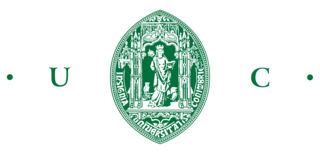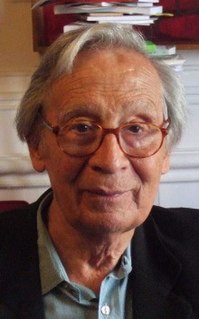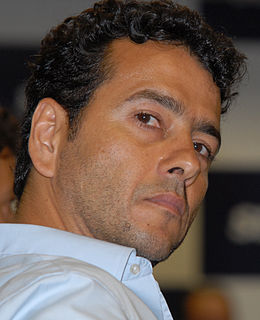| Fernando Gonçalves Namora | |
|---|---|
 Namora in 1966 | |
| Born | 15 April 1919 Condeixa-a-Nova |
| Died | 31 January 1989 (aged 69) Lisbon |
| Occupation | medical doctor, writer |
| Nationality | Portuguese |
| Period | 1937-1988 |
| Genre | Literature |
| Subject | poetry, romance and essayism |
| Literary movement | Neorealism and Contemporary Fiction |
| Signature | |
| Website | |
| fernando-namora | |
Fernando Namora (15 April 1919 – 31 January 1989), with the full name Fernando Gonçalves Namora was a Portuguese writer and medical doctor. Namora was born in Condeixa-a-Nova, Coimbra District and died in Lisbon, Portugal.

Portuguese people are a Romance ethnic group indigenous to Portugal that share a common Portuguese culture and speak Portuguese. Their predominant religion is Christianity, mainly Roman Catholicism, though vast segments of the population, especially the younger generations, have no religious affiliation. Historically, the Portuguese people's heritage includes the pre-Celts and Celts. A number of Portuguese descend from converted Jewish and North Africans as a result of the Moorish occupation of the Iberian Peninsula.

Condeixa-a-Nova, also known as Condeixa, is a town and a municipality in the district of Coimbra, Portugal. The population in 2011 was 17,078, in an area of 138.67 km². It is located 15 km south of Coimbra, and is part of the Região de Coimbra. The town is known for the ancient Roman settlement of Conímbriga which is located nearby, and includes a museum and the well-preserved ruins.

Coimbra District is located in the Centro Region, the district capital is the city of Coimbra.
Contents
He received his medical degree at 1942, by the University of Coimbra. Those years as student would have influenced him as a man (and writer) as well his experience as a country doctor, in remote regions as Beira Baixa and Alentejo, till the year of 1950, when he moved to Lisbon, invited to be medical assistant at the Instituto Português de Oncologia. [1]

The University of Coimbra is a Portuguese public university in Coimbra, Portugal. Established in 1290 in Lisbon, it went through a number of relocations until it was moved permanently to its current city in 1537, being one of the oldest universities in continuous operation in the world, the oldest university of Portugal, and one of the country's largest museums of higher education and research institutions.

Beira Baixa was a Portuguese province. It was abolished with the Constitution of 1976.

The Alentejo is a geographical, historical and cultural region of south central and southern Portugal. In Portuguese, its name means "beyond" (além) the Tagus river (Tejo).
His early book was Relevos , poetry, in (1937), published at the age of 18. In (1938) appeared his first romance As Sete Partidas do Mundo that won the Almeida Garrett Prize, and, three years later, with some other colleagues at Coimbra, was involved in the literary project of Novo Cancioneiro , (1941), with 10 volumes, which the first one was his poem named Terra - for many specialists the advent of neorealism movement, a milestone in the Portuguese literature. [2] All the early age lyrics are in the anthology As Frias Madrugadas , by 1959. Nevertheless, his youth, Coimbra's student atmosphere romance is Fogo na Noite Escura (1943), at the collection Novos Prosadores (1943), by Coimbra Editora . [3]
In art, neorealism refers to a few movements.
Besides over 30 titles, along his fifty years of intensive literary life, not only wrote “neo-realistic” novels, as Casa da Malta (1945), Minas de S. Francisco (1946), Retalhos da Vida de um Médico (1949 and 1963), A Noite e a Madrugada (1950), O Trigo e o Joio (1954), but also “urban themes”, contemporary fiction, as in O Homem Disfarçado (1957), Cidade Solitária (1959), Domingo à Tarde (1961, José Lins do Rego Prize), Os Clandestinos (1972), Resposta a Matilde (1980) or O Rio Triste (1982, Fernando Chinaglia Prize, Fialho de Almeida Prize and D. Dinis Prize). Another cicle was the cadernos de um escritor narratives, a sort of analytic, critic testimonials, regarding “social themes” and the emergence of a new time, specially during the 1960s and 1970s, related with the Geneve International Encounters and the many travels abroad (including Scandinavia), expressed in Diálogo em Setembro (1966), Um Sino na Montanha (1968), Os Adoradores do Sol (1971), Estamos no Vento (1974), A Nave de Pedra (1975), Cavalgada Cinzenta (1977), URSS, Mal Amada, Bem Amada and Sentados na Relva, from (1986). [3]
Namora was suggested for the Nobel Prize in 1981. [4]











